List of Nobel Peace Prize laureates

The Norwegian Nobel Committee each year awards the Nobel Peace Prize (Norwegian and Swedish: Nobels fredspris) "to the person who shall have done the most or the best work for fraternity between nations, for the abolition or reduction of standing armies and for the holding and promotion of peace congresses."[1]
Laureates
As of 2016, the Peace Prize has been awarded to 104 individuals and 23 organizations. Sixteen women have won the Nobel Peace Prize, more than any other Nobel Prize.[2] Only two recipients have won multiple Prizes: the International Committee of the Red Cross has won three times (1917, 1944, and 1963) and the Office of the United Nations High Commissioner for Refugees has won twice (1954 and 1981).[3] There have been 19 years since its creation in which the Peace Prize was not awarded, more times than any other Nobel Prize.
Lê Đức Thọ is the only person to ever refuse to accept a Nobel Peace Prize.[4] He was jointly awarded the 1973 award with Henry Kissinger but declined the prize on grounds that such "bourgeois sentimentalities" were not for him[93] and that the Paris Peace Accords were not being adhered to in full.
| Year | Laureate | Country | Rationale | |
|---|---|---|---|---|
| 1901 |  |
Henry Dunant | |
For his role in founding the International Committee of the Red Cross[5][6] |
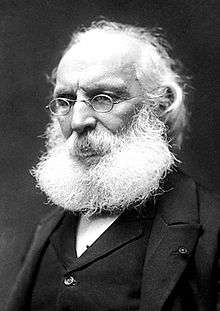 |
Frédéric Passy | |
"[For] being one of the main founders of the Inter-Parliamentary Union and also the main organizer of the first Universal Peace Congress"[5][6] | |
| 1902 |  |
Élie Ducommun | |
"[For his role as] the first honorary secretary of the International Peace Bureau"[5][7] |
 |
Charles Albert Gobat | "[For his role as the] first Secretary General of the Inter-Parliamentary Union"[5][7] | ||
| 1903 | 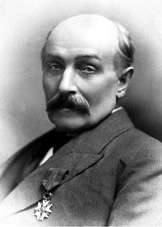 |
William Randal Cremer | |
"[For his role as] the 'first father' of the Inter-Parliamentary Union"[5][8] |
| 1904 | |
Institute of International Law | |
"[F]or its efforts as an unofficial body to formulate the general principles of the science of international law"[5][9] |
| 1905 |  |
Bertha von Suttner | |
For writing Lay Down Your Arms and contributing to the creation of the Prize[5][10] |
| 1906 | 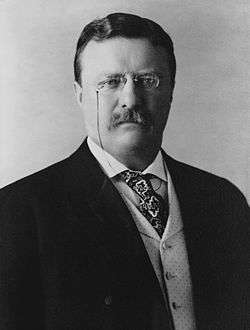 |
Theodore Roosevelt | |
"[F]or his successful mediation to end the Russo-Japanese war and for his interest in arbitration, having provided the Hague arbitration court with its very first case"[5][11] |
| 1907 |  |
Ernesto Teodoro Moneta | |
"[For his work as a] key leader of the Italian peace movement"[5][12] |
 |
Louis Renault | |
"[For his work as a] leading French international jurist and a member of the Permanent Court of Arbitration at The Hague"[5][12] | |
| 1908 | 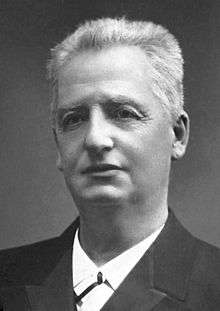 |
Klas Pontus Arnoldson | |
"[For his work as] founder of the Swedish Peace and Arbitration League"[5][13] |
 |
Fredrik Bajer | |
"[For being] the foremost peace advocate in Scandinavia, combining work in the Inter-Parliamentary Union with being the first president of the International Peace Bureau"[5][13] | |
| 1909 |  |
Auguste Beernaert | |
"[For being a] representative to the two Hague conferences, and a leading figure in the Inter-Parliamentary Union"[5][14] |
 |
Paul Henri d'Estournelles de Constant | |
"[For] combined diplomatic work for Franco-German and Franco-British understanding with a distinguished career in international arbitration"[5][14] | |
| 1910 |  |
Permanent International Peace Bureau | |
"[For acting] as a link between the peace societies of the various countries"[15][16] |
| 1911 | 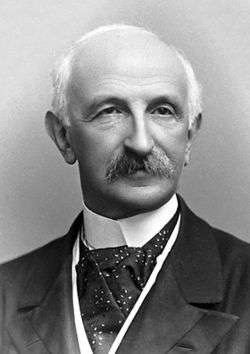 |
Tobias Asser | |
"[For being a] member of the Court of Arbitration as well as the initiator of the Conferences on International Private Law"[5][17] |
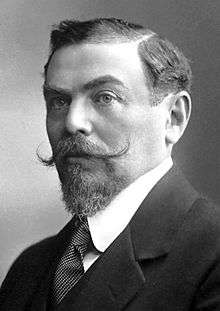 |
Alfred Fried | |
"[For his work as] founder of the German Peace Society"[5][17] | |
| 1912 | 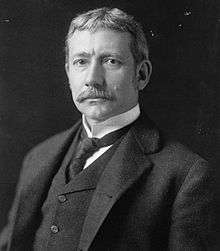 |
Elihu Root[A] | |
"[F]or his strong interest in international arbitration and for his plan for a world court"[5][18] |
| 1913 | 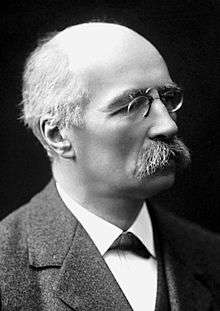 |
Henri La Fontaine | |
"[For his work as] head of the International Peace Bureau"[5][19] |
| 1914 | Not awarded due to World War I. | |||
| 1915 | ||||
| 1916 | ||||
| 1917 | 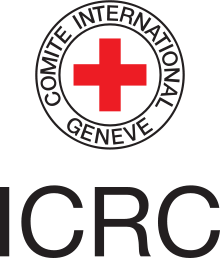 |
International Committee of the Red Cross | |
"[For undertaking] the tremendous task of trying to protect the rights of the many prisoners of war on all sides [of World War I], including their right to establish contacts with their families"[5][20] |
| 1918 | Not awarded due to World War I. | |||
| 1919 | 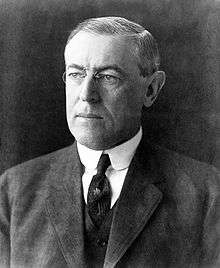 |
Woodrow Wilson | |
"[F]or his crucial role in establishing the League of Nations"[5][21] |
| 1920 |  |
Léon Bourgeois | |
"[For his participation] in both the Hague Conferences of 1899 and 1907" and for his work towards "what became the League to such an extent that he was frequently called its 'spiritual father'"[5][22] |
| 1921 |  |
Hjalmar Branting | |
"[F]or his work in the League of Nations"[5][23] |
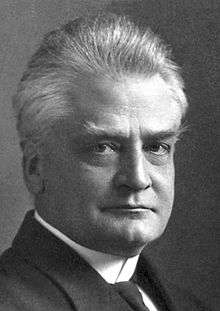 |
Christian Lange | |
"[For his work as] the first secretary of the Norwegian Nobel Committee" and "the secretary-general of the Inter-Parliamentary Union"[5][23] | |
| 1922 |  |
Fridtjof Nansen | |
"[For] his work in aiding the millions in Russia struggling against famine" and "his work for the refugees in Asia Minor and Thrace"[24][25] |
| 1923 | Not awarded | |||
| 1924 | ||||
| 1925 |  |
Sir Austen Chamberlain[A] | |
For work on the Locarno Treaties[5][26] |
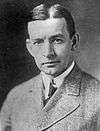 |
Charles G. Dawes[A] | |
"[F]or [work on] the Dawes Plan for German reparations which was seen as having provided the economic underpinning of the Locarno Pact of 1925"[5][26] | |
| 1926 | 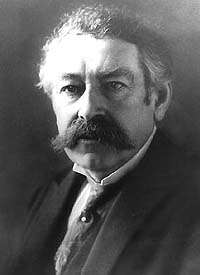 |
Aristide Briand | |
For work on the Locarno Treaties[5][27] |
 |
Gustav Stresemann | | ||
| 1927 |  |
Ferdinand Buisson | |
"[For] contributions to Franco-German popular reconciliation"[5][28] |
 |
Ludwig Quidde | | ||
| 1928 | Not awarded | |||
| 1929 |  |
Frank B. Kellogg[A] | |
"[F]or the Kellogg-Briand pact, whose signatories agreed to settle all conflicts by peaceful means and renounced war as an instrument of national policy"[5][29] |
| 1930 |  |
Nathan Söderblom | |
"[F]or his efforts to involve the churches not only in work for ecumenical unity, but also for world peace"[5][30] |
| 1931 |  |
Jane Addams | |
"[F]or her social reform work" and "leading the Women's International League for Peace and Freedom"[5][31] |
 |
Nicholas Murray Butler | "[For his promotion] of the Briand-Kellogg pact" and for his work as the "leader of the more establishment-oriented part of the American peace movement"[5][31] | ||
| 1932 | Not awarded | |||
| 1933 | 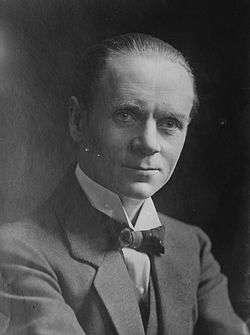 |
Sir Norman Angell[A] | |
For authoring The Great Illusion and for being a "supporter of the League of Nations as well as an influential publicist [and] educator for peace in general"[32] |
| 1934 | 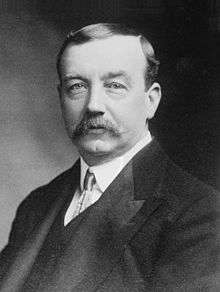 |
Arthur Henderson | |
"[F]or his work for the League, particularly its efforts in disarmament"[5][33][34] |
| 1935 | 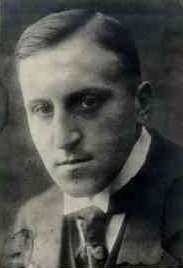 |
Carl von Ossietzky[B] | |
"[For his] struggle against Germany's rearmament"[5][35] |
| 1936 | 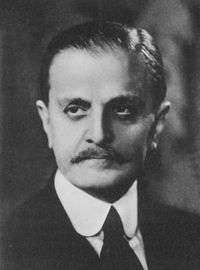 |
Carlos Saavedra Lamas | |
"[F]or his mediation of an end to the Chaco War between Paraguay and Bolivia"[5][36] |
| 1937 |  |
The Viscount Cecil of Chelwood | |
For his work with the League of Nations[5][37] |
| 1938 | .svg.png) |
Nansen International Office for Refugees | |
For its work in aiding refugees[38] |
| 1939 | Not awarded due to World War II. | |||
| 1940 | ||||
| 1941 | ||||
| 1942 | ||||
| 1943 | ||||
| 1944 |  |
International Committee of the Red Cross | |
"[F]or the great work it has performed during the war in behalf of humanity"[39] |
| 1945 | 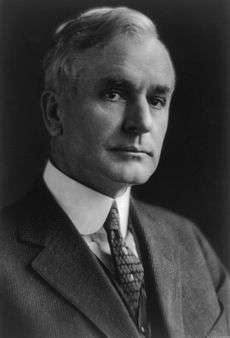 |
Cordell Hull | |
"[For] his fight against isolationism at home, his efforts to create a peace bloc of states on the American continents, and his work for the United Nations Organization"[40] |
| 1946 |  |
Emily Greene Balch | |
"Formerly Professor of History and Sociology; Honorary International President, Women's International League for Peace and Freedom"[41] |
 |
John Raleigh Mott | "Chairman, International Missionary Council; President, World Alliance of Young Men's Christian Associations"[41] | ||
| 1947 |  |
Friends Service Council | |
"compassion for others and the desire to help them"[42] |
| American Friends Service Committee | | |||
| 1948 | Not awarded because "there was no suitable living candidate." (A tribute to the recently assassinated Gandhi in India, since the prize cannot be awarded posthumously.)[43] | |||
| 1949 | 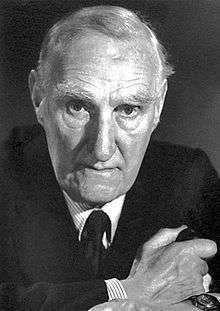 |
The Lord Boyd-Orr | |
"Physician; Alimentary Politician; Prominent organizer and Director, General Food and Agricultural Organization; President, National Peace Council and World Union of Peace Organizations"[44] |
| 1950 | 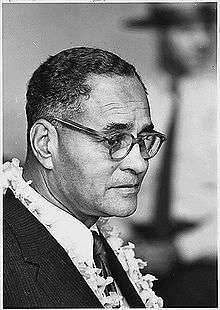 |
Ralph Bunche | |
"Professor, Harvard University Cambridge, MA; Director, division of Trusteeship, U.N.; Acting Mediator in Palestine, 1948"[45] |
| 1951 | 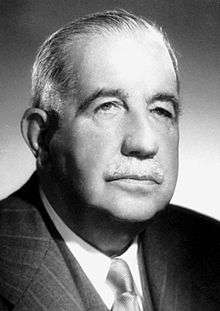 |
Léon Jouhaux | |
"President of the International Committee of the European Council, vice president of the International Confederation of Free Trade Unions, vice president of the World Federation of Trade Unions, member of the ILO Council, delegate to the United Nations"[46] |
| 1952 | 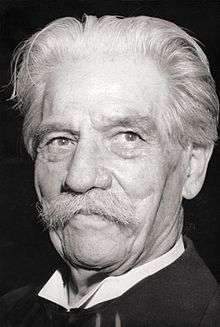 |
Albert Schweitzer | |
"Missionary surgeon; Founder of Lambaréné (République de Gabon)"[47] |
| 1953 | |
George C. Marshall | |
"General President American Red Cross; Former Secretary of State and of Defense; Delegate U.N.; Originator of [the] 'Marshall Plan'"[48] |
| 1954 |  |
Office of the United Nations High Commissioner for Refugees | |
"An international relief organization founded by the U.N. in 1951"[49] |
| 1955 | Not awarded | |||
| 1956 | ||||
| 1957 |  |
Lester Bowles Pearson | |
"former Secretary of State for External Affairs of Canada; former President of the 7th Session of the United Nations General Assembly";[50] "for his role in trying to end the Suez conflict and to solve the Middle East question through the United Nations."[5] |
| 1958 |  |
Dominique Pire | |
"Father in the Dominican Order; Leader of the relief organization for refugees "L'Europe du Coeur au Service du Monde""[51] |
| 1959 |  |
Philip Noel-Baker | |
"Member of Parliament; lifelong ardent worker for international peace and co-operation"[52] |
| 1960 | 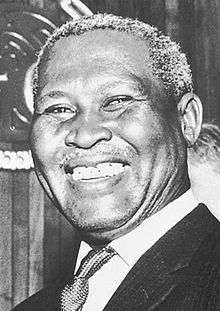 |
Albert Lutuli | (Born in Southern Rhodesia) |
"President of the African National Congress,"[53] "was in the very forefront of the struggle against apartheid in South Africa."[5] |
| 1961 |  |
Dag Hammarskjöld[C] | |
"Secretary General of the U.N.,"[54] awarded "for strengthening the organization."[5] |
| 1962 | 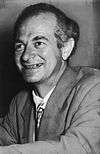 |
Linus Pauling | |
"for his campaign against nuclear weapons testing"[55] |
| 1963 |  |
International Committee of the Red Cross | |
For their work in the protection of human rights in the ICRC's 100 years of existence.[56] |
| League of Red Cross Societies | ||||
| 1964 |  |
Martin Luther King, Jr. | |
Campaigner for civil rights, "first person in the Western world to have shown us that a struggle can be waged without violence."[57] |
| 1965 | United Nations Children's Fund (UNICEF) | |
"An international aid organization." [58] | |
| 1966 | Not awarded | |||
| 1967 | ||||
| 1968 | 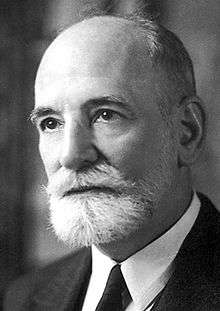 |
René Cassin | |
"President of the European Court for Human Rights"[59] |
| 1969 | 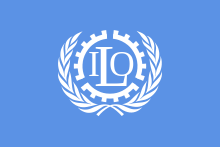 |
International Labour Organization | |
[60] |
| 1970 | .jpg) |
Norman E. Borlaug | |
"International Maize and Wheat Improvement Center;"[61] "for his contributions to the "green revolution" that was having such an impact on food production particularly in Asia and in Latin America."[5] |
| 1971 | 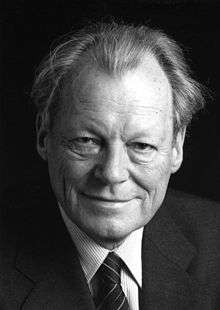 |
Willy Brandt | |
"Chancellor of the Federal Republic of Germany; for West Germany's Ostpolitik"[62] |
| 1972 | Not awarded | |||
| 1973 | 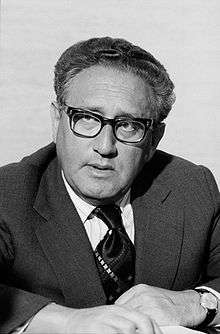 |
Henry Kissinger | (Born in |
"For the 1973 Paris agreement intended to bring about a cease-fire in the Vietnam war and a withdrawal of the American forces"[5][63] |
 |
Lê Đức Thọ[D] | | ||
| 1974 | 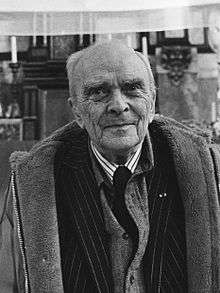 |
Seán MacBride | (Born in |
"President of the International Peace Bureau; President of the Commission of Namibia."[64] "For his strong interest in human rights: piloting the European Convention on Human Rights through the Council of Europe, helping found and then lead Amnesty International and serving as secretary-general of the International Commission of Jurists"[5] |
 |
Eisaku Satō | |
"Prime Minister of Japan,"[64] "for his renunciation of the nuclear option for Japan and his efforts to further regional reconciliation"[5] | |
| 1975 |  |
Andrei Sakharov[E] | |
"[for his] struggle for human rights, for disarmament, and for cooperation between all nations"[65] |
| 1976 |  |
Betty Williams | |
"Founder[s] of the Northern Ireland Peace Movement (later renamed Community of Peace People)"[66] |
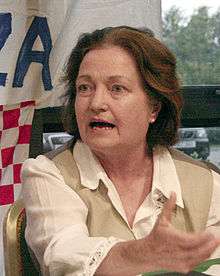 |
Mairead Corrigan | |||
| 1977 | Amnesty International | "[for] protecting the human rights of prisoners of conscience"[5][67] | ||
| 1978 |  |
Mohamed Anwar Al-Sadat | |
"for the Camp David Agreement, which brought about a negotiated peace between Egypt and Israel"[68] |
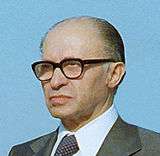 |
Menachem Begin | (Born in | ||
| 1979 | 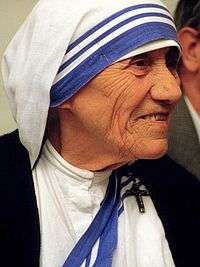 |
Mother Teresa | (Born in Skopje, now |
"Founder of Missionaries of Charity"[69] |
| 1980 | 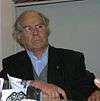 |
Adolfo Pérez Esquivel | |
"Human rights leader;"[70] "founded non-violent human rights organizations to fight the military junta that was ruling his country (Argentina)."[5] |
| 1981 |  |
Office of the United Nations High Commissioner for Refugees | |
"An international relief organization founded by the U.N. in 1951"[71] |
| 1982 | 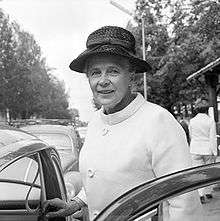 |
Alva Myrdal | |
"[for] their magnificent work in the disarmament negotiations of the United Nations, where they have both played crucial roles and won international recognition"[72][73] |
 |
Alfonso García Robles | | ||
| 1983 |  |
Lech Wałęsa | |
"Founder of Solidarność; campaigner for human rights"[74] |
| 1984 | 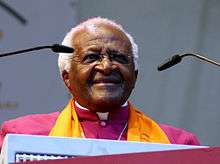 |
Desmond Tutu | |
"Bishop of Johannesburg; former Secretary General, South African Council of Churches"[75] |
| 1985 | International Physicians for the Prevention of Nuclear War | |
For "authoritative information and by creating an awareness of the catastrophic consequences of atomic warfare. The committee believes that this in turn contributes to an increase in the pressure of public opposition to the proliferation of atomic weapons and to a redefining of priorities, with greater attention being paid to health and other humanitarian issues."[76] | |
| 1986 |  |
Elie Wiesel | (Born in |
"Chairman of "The President's Commission on the Holocaust""[77] |
| 1987 | 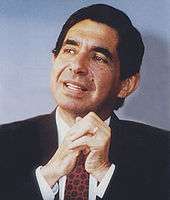 |
Óscar Arias | |
"for his work for peace in Central America, efforts which led to the accord signed in Guatemala on August 7 this year"[78] |
| 1988 | 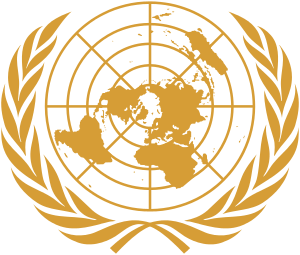 |
United Nations Peace-Keeping Forces | |
"[for] their efforts [that] have made important contributions towards the realization of one of the fundamental tenets of the United Nations"[79][80] |
| 1989 | .jpg) |
Tenzin Gyatso, 14th Dalai Lama |
(Born in Tibet)[81] |
"In his struggle for the liberation of Tibet [he] consistently has opposed the use of violence. He has instead advocated peaceful solutions based upon tolerance and mutual respect in order to preserve the historical and cultural heritage of his people."[82][83] |
| 1990 | 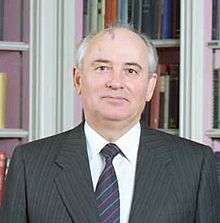 |
Mikhail Gorbachev | |
President of the Soviet Union, "for his leading role in the peace process which today characterizes important parts of the international community"[84] |
| 1991 |  |
Aung San Suu Kyi[F] | |
"for her non-violent struggle for democracy and human rights"[85] |
| 1992 | Rigoberta Menchú | |
"for her work for social justice and ethno-cultural reconciliation based on respect for the rights of indigenous peoples"[86] | |
| 1993 |  |
Nelson Mandela | |
"for their work for the peaceful termination of the apartheid regime, and for laying the foundations for a new democratic South Africa"[87] |
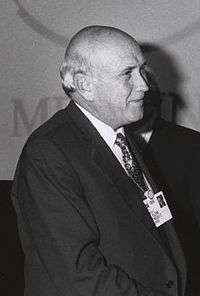 |
Frederik Willem de Klerk | |||
| 1994 |  |
Yasser Arafat | (Born in |
"to honour a political act which called for great courage on both sides, and which has opened up opportunities for a new development towards fraternity in the Middle East."[88] |
_cropped.jpg) |
Yitzhak Rabin | | ||
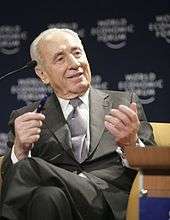 |
Shimon Peres | (Born in | ||
| 1995 | 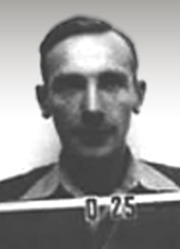 |
Joseph Rotblat | (Born in |
"for their efforts to diminish the part played by nuclear arms in international politics and, in the longer run, to eliminate such arms"[89] |
 |
Pugwash Conferences on Science and World Affairs | | ||
| 1996 |  |
Carlos Filipe Ximenes Belo | |
"for their work towards a just and peaceful solution to the conflict in East Timor."[90] |
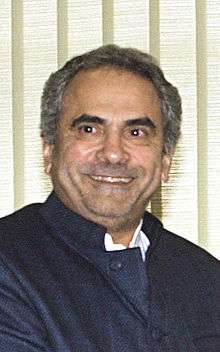 |
José Ramos-Horta | |||
| 1997 | |
International Campaign to Ban Landmines | |
"for their work for the banning and clearing of anti-personnel mines"[91] |
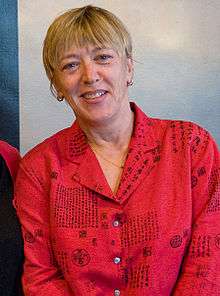 |
Jody Williams | | ||
| 1998 | 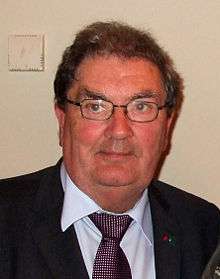 |
John Hume | |
"for their efforts to find a peaceful solution to the conflict in Northern Ireland"[92] |
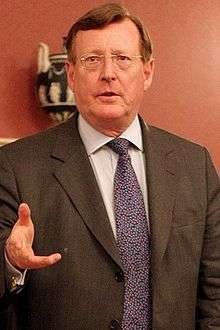 |
David Trimble | | ||
| 1999 | Médecins Sans Frontières | |
"in recognition of the organization's pioneering humanitarian work on several continents"[93] | |
| 2000 | .png) |
Kim Dae-jung | |
"for his work for democracy and human rights in South Korea and in East Asia in general, and for peace and reconciliation with North Korea in particular"[94] |
| 2001 |  |
United Nations | |
"for their work for a better organized and more peaceful world"[95] |
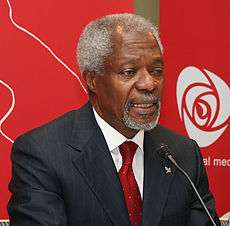 |
Kofi Annan | | ||
| 2002 |  |
Jimmy Carter | |
"for his decades of untiring effort to find peaceful solutions to international conflicts, to advance democracy and human rights, and to promote economic and social development"[96] |
| 2003 | 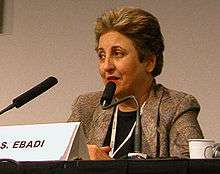 |
Shirin Ebadi | |
"for her efforts for democracy and human rights. She has focused especially on the struggle for the rights of women and children."[97] |
| 2004 |  |
Wangari Muta Maathai | |
"for her contribution to sustainable development, democracy and peace"[98] |
| 2005 |  |
International Atomic Energy Agency | |
"for their efforts to prevent nuclear energy from being used for military purposes and to ensure that nuclear energy for peaceful purposes is used in the safest possible way"[99] |
 |
Mohamed ElBaradei | | ||
| 2006 | .jpg) |
Muhammad Yunus | |
"for advancing economic and social opportunities for the poor, especially women, through their pioneering microcredit work"[100] |
| Grameen Bank | ||||
| 2007 | Intergovernmental Panel on Climate Change | |
"for their efforts to build up and disseminate greater knowledge about man-made climate change, and to lay the foundations for the measures that are needed to counteract such change"[101] | |
 |
Al Gore | | ||
| 2008 | 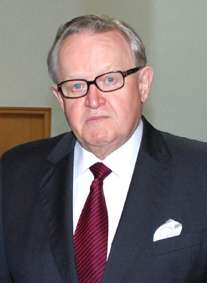 |
Martti Ahtisaari | |
"for his efforts on several continents and over more than three decades, to resolve international conflicts"[102] |
| 2009 |  |
Barack Obama | |
"for his extraordinary efforts to strengthen international diplomacy and cooperation between peoples."[103] |
| 2010 | Liu Xiaobo[G] | |
"for his long and non-violent struggle for fundamental human rights in China"[104] | |
| 2011 |  |
Ellen Johnson Sirleaf | |
"for their non-violent struggle for the safety of women and for women's rights to full participation in peace-building work"[105] |
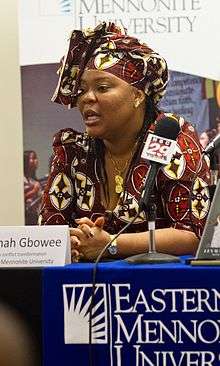 |
Leymah Gbowee | |||
.jpg) |
Tawakkul Karman | | ||
| 2012 |  |
European Union | |
"for over six decades contributed to the advancement of peace and reconciliation, democracy and human rights in Europe."[106] |
| 2013 | 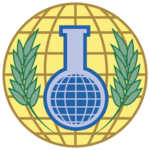 |
Organisation for the Prohibition of Chemical Weapons | International | "for its extensive efforts to eliminate chemical weapons."[107] |
| 2014 | 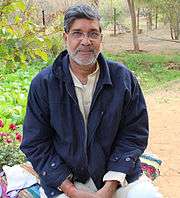 |
Kailash Satyarthi | |
"for their struggle against the suppression of children and young people and for the right of all children to education"[108] |
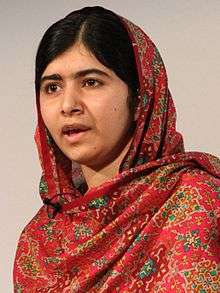 |
Malala Yousafzai | | ||
| 2015 | .jpg) |
Tunisian National Dialogue Quartet | |
"for its decisive contribution to the building of a pluralistic democracy in Tunisia in the wake of the Jasmine Revolution of 2011"[109] |
| 2016 | .jpg) |
Juan Manuel Santos | |
"for his resolute efforts to bring the country's more than 50-year-long civil war to an end, a war that has cost the lives of at least 220,000 Colombians and displaced close to six million people"[110] |
See also
Notes
- A Elihu Root, Austen Chamberlain, Charles G. Dawes, Frank B. Kellogg, and Norman Angell were all awarded their respective Prizes one year late because the Committee decided that none of the nominations in the year in which they are listed as being awarded the Prize met the criteria in Nobel's will; per its rules the Committee delayed the awarding of the Prizes until the next year, although they were awarded as the previous year's Prize.[18][26][29][32]
- B Carl von Ossietzky's Prize was awarded in absentia because he was refused a passport by the government of Germany.[111]
- C Dag Hammarskjöld's Prize was awarded posthumously.
- D Lê Đức Thọ declined to accept the Prize.[63]
- E Andrei Sakharov's Prize was awarded in absentia because he was refused a passport by the government of the Soviet Union.[112]
- F Aung San Suu Kyi's Prize was awarded in absentia because she was being held prisoner by the government of Burma. Following her release from house arrest and election to the Pyithu Hluttaw, Suu Kyi accepted her award in person on 16 June 2012.[113]
- G Liu Xiaobo's Prize was awarded in absentia because he is imprisoned in China.[114]
References
- General
- "All Nobel Peace Prize Laureates". Nobel Foundation. Retrieved 2008-11-29.
- "Nobel Prize winners by category (peace)". Encyclopædia Britannica. Retrieved 2008-11-29.
- Rogers, Simon (8 October 2010). "Nobel peace prize winners list 2010: how does Liu Xiaobo compare to previous medal holders?". The Guardian.
- Specific
- ↑ "Excerpt from the Will of Alfred Nobel". Nobel Foundation. Retrieved 2011-10-06.
- ↑ "Women Nobel Laureates". Nobel Foundation. Retrieved 2011-10-06.
- ↑ "Nobel Laureates Facts". Nobel Foundation. Retrieved 2011-10-06.
- ↑ Rothman, Lily. "Why a Nobel Peace Prize Was Once Rejected". TIME.com. Retrieved 2016-10-16.
- 1 2 3 4 5 6 7 8 9 10 11 12 13 14 15 16 17 18 19 20 21 22 23 24 25 26 27 28 29 30 31 32 33 34 35 36 37 38 39 40 41 42 43 44 Lundestad, Geir (2001-03-15). "The Nobel Peace Prize, 1901–2000". Nobel Foundation. Retrieved 2011-10-06.
- 1 2 "The Nobel Peace Prize 1901". Nobel Foundation. Retrieved 2011-10-06.
- 1 2 "The Nobel Peace Prize 1902". Nobel Foundation. Retrieved 2011-10-06.
- ↑ "The Nobel Peace Prize 1903". Nobel Foundation. Retrieved 2011-10-06.
- ↑ "The Nobel Peace Prize 1904". Nobel Foundation. Retrieved 2011-10-06.
- ↑ "The Nobel Peace Prize 1905". Nobel Foundation. Retrieved 2011-10-06.
- ↑ "The Nobel Peace Prize 1906". Nobel Foundation. Retrieved 2011-10-06.
- 1 2 "The Nobel Peace Prize 1907". Nobel Foundation. Retrieved 2011-10-06.
- 1 2 "The Nobel Peace Prize 1908". Nobel Foundation. Retrieved 2011-10-06.
- 1 2 "The Nobel Peace Prize 1909". Nobel Foundation. Retrieved 2011-10-06.
- ↑ "Award Ceremony Speech (1910)". Nobel Foundation. Retrieved 2011-10-06.
- ↑ "The Nobel Peace Prize 1910". Nobel Foundation. Retrieved 2011-10-06.
- 1 2 "The Nobel Peace Prize 1911". Nobel Foundation. Retrieved 2011-10-06.
- 1 2 "The Nobel Peace Prize 1912". Nobel Foundation. Retrieved 2011-10-06.
- ↑ "The Nobel Peace Prize 1913". Nobel Foundation. Retrieved 2011-10-06.
- ↑ "The Nobel Peace Prize 1917". Nobel Foundation. Retrieved 2011-10-06.
- ↑ "The Nobel Peace Prize 1919". Nobel Foundation. Retrieved 2011-10-06.
- ↑ "The Nobel Peace Prize 1920". Nobel Foundation. Retrieved 2011-10-06.
- 1 2 "The Nobel Peace Prize 1921". Nobel Foundation. Retrieved 2011-10-06.
- ↑ Stang, Fredrik. "Award Ceremony Speech (1922)". Nobel Foundation. Retrieved 2011-10-10.
- ↑ "The Nobel Peace Prize 1922". Nobel Foundation. Retrieved 2011-10-06.
- 1 2 3 "The Nobel Peace Prize 1925". Nobel Foundation. Retrieved 2011-10-06.
- ↑ "The Nobel Peace Prize 1926". Nobel Foundation. Retrieved 2011-10-06.
- ↑ "The Nobel Peace Prize 1927". Nobel Foundation. Retrieved 2011-10-06.
- 1 2 "The Nobel Peace Prize 1929". Nobel Foundation. Retrieved 2011-10-06.
- ↑ "The Nobel Peace Prize 1930". Nobel Foundation. Retrieved 2011-10-06.
- 1 2 "The Nobel Peace Prize 1931". Nobel Foundation. Retrieved 2011-10-06.
- 1 2 "The Nobel Peace Prize 1933". Nobel Foundation. Retrieved 2011-10-06.
- ↑ "The Nobel Peace Prize 1934". Nobel Foundation. Retrieved 2011-10-06.
- ↑ BBC News: Nobel Peace Prize medal stolen in Newcastle 3 April 2013, accessed 3 April 2013
- ↑ "The Nobel Peace Prize 1935". Nobel Foundation. Retrieved 2011-10-06.
- ↑ "The Nobel Peace Prize 1936". Nobel Foundation. Retrieved 2011-10-06.
- ↑ "The Nobel Peace Prize 1937". Nobel Foundation. Retrieved 2011-10-06.
- ↑ Stang, Fredrik. "Award Ceremony Speech (1938)". Nobel Foundation. Retrieved 2011-10-06.
- ↑ Jahn, Gunnar. "Award Ceremony Speech (1944)". Nobel Foundation. Retrieved 2011-10-06.
- ↑ Jahn, Gunnar. "Award Ceremony Speech (1945)". Nobel Foundation. Retrieved 2011-10-06.
- 1 2 "The Nobel Peace Prize 1946". Nobel Foundation. Retrieved 2008-11-12.
- ↑ Jahn, Gunnar. "Award Ceremony Speech (1947)". Nobel Foundation. Retrieved 2011-10-06.
- ↑ Tønnesson, Øyvind (1999-12-01). "Controversies Mahatma Gandhi, the Missing Laureate". Nobel Foundation. Retrieved 2011-10-06.
- ↑ "The Nobel Peace Prize 1949". Nobel Foundation. Retrieved 2008-11-12.
- ↑ "The Nobel Peace Prize 1950". Nobel Foundation. Retrieved 2008-11-12.
- ↑ "The Nobel Peace Prize 1951". Nobel Foundation. Retrieved 2008-11-12.
- ↑ "The Nobel Peace Prize 1952". Nobel Foundation. Retrieved 2008-11-12.
- ↑ "The Nobel Peace Prize 1953". Nobel Foundation. Retrieved 2008-11-12.
- ↑ "The Nobel Peace Prize 1954". Nobel Foundation. Retrieved 2008-11-12.
- ↑ "The Nobel Peace Prize 1957". Nobel Foundation. Retrieved 2008-11-12.
- ↑ "The Nobel Peace Prize 1958". Nobel Foundation. Retrieved 2008-11-12.
- ↑ "The Nobel Peace Prize 1959". Nobel Foundation. Retrieved 2008-11-12.
- ↑ "The Nobel Peace Prize 1960". Nobel Foundation. Retrieved 2008-11-12.
- ↑ "The Nobel Peace Prize 1961". Nobel Foundation. Retrieved 2008-11-12.
- ↑ "The Nobel Peace Prize 1962". Nobel Foundation. Retrieved 2008-11-12.
- ↑ "The Nobel Peace Prize 1963". Nobel Foundation. Retrieved 2008-11-12.
- ↑ "The Nobel Peace Prize 1964". Nobel Foundation. Retrieved 2008-11-12.
- ↑ "The Nobel Peace Prize 1965". Nobel Foundation. Retrieved 2008-11-12.
- ↑ "The Nobel Peace Prize 1968". Nobel Foundation. Retrieved 2008-11-12.
- ↑ "The Nobel Peace Prize 1969". Nobel Foundation. Retrieved 2008-11-12.
- ↑ "The Nobel Peace Prize 1970". Nobel Foundation. Retrieved 2008-11-12.
- ↑ "The Nobel Peace Prize 1971". Nobel Foundation. Retrieved 2008-11-12.
- 1 2 "The Nobel Peace Prize 1973". Nobel Foundation. Retrieved 2008-11-12.
- 1 2 "The Nobel Peace Prize 1974". Nobel Foundation. Retrieved 2008-11-12.
- ↑ "The Nobel Peace Prize 1975". Nobel Foundation. Retrieved 2008-11-12.
- ↑ "The Nobel Peace Prize 1976". Nobel Foundation. Retrieved 2008-11-12.
- ↑ "The Nobel Peace Prize 1977". Nobel Foundation. Retrieved 2008-11-12.
- ↑ "The Nobel Peace Prize 1978". Nobel Foundation. Retrieved 2008-11-12.
- ↑ "The Nobel Peace Prize 1979". Nobel Foundation. Retrieved 2008-11-12.
- ↑ "The Nobel Peace Prize 1980". Nobel Foundation. Retrieved 2008-11-12.
- ↑ "The Nobel Peace Prize 1981". Nobel Foundation. Retrieved 2008-11-12.
- ↑ "The Nobel Peace Prize 1982". Nobel Foundation. Retrieved 2008-11-12.
- ↑ "The Nobel Peace Prize 1982–Presentation Speech". Nobel Foundation. Retrieved 2008-12-03.
- ↑ "The Nobel Peace Prize 1983". Nobel Foundation. Retrieved 2008-11-12.
- ↑ "The Nobel Peace Prize 1984". Nobel Foundation. Retrieved 2008-11-12.
- ↑ "The Nobel Peace Prize 1985". Nobel Foundation. Retrieved 2008-11-12.
- ↑ "The Nobel Peace Prize 1986". Nobel Foundation. Retrieved 2008-11-12.
- ↑ "The Nobel Peace Prize 1987". Nobel Foundation. Retrieved 2008-10-20.
- ↑ "The Nobel Peace Prize 1988". Nobel Foundation. Retrieved 2008-11-12.
- ↑ "The Nobel Peace Prize 1988–Press release". Nobel Foundation. 1988-09-29. Retrieved 2008-11-28.
- ↑ http://www.nobelprize.org/nobel_prizes/peace/laureates/1989/lama-facts.html
- ↑ "The Nobel Peace Prize 1989". Nobel Foundation. Retrieved 2008-11-12.
- ↑ "The Nobel Peace Prize 1989–Press release". Nobel Foundation. 1989-10-05. Retrieved 2008-11-28.
- ↑ "The Nobel Peace Prize 1990". Nobel Foundation. Retrieved 2008-10-20.
- ↑ "The Nobel Peace Prize 1991". Nobel Foundation. Retrieved 2008-10-20.
- ↑ "The Nobel Peace Prize 1992". Nobel Foundation. Retrieved 2008-10-20.
- ↑ "The Nobel Peace Prize 1993". Nobel Foundation. Retrieved 2008-10-20.
- ↑ "Press Release- The Nobel Peace Prize 1994". Nobel Foundation. Retrieved 2008-10-20.
- ↑ "The Nobel Peace Prize 1995". Nobel Foundation. Retrieved 2008-10-20.
- ↑ "The Nobel Peace Prize 1996". Nobel Foundation. Retrieved 2008-10-20.
- ↑ "The Nobel Peace Prize 1997". Nobel Foundation. Retrieved 2008-10-20.
- ↑ "The Nobel Peace Prize 1998". Nobel Foundation. Retrieved 2008-10-20.
- ↑ "The Nobel Peace Prize 1999". Nobel Foundation. Retrieved 2008-10-20.
- ↑ "The Nobel Peace Prize 2000". Nobel Foundation. Retrieved 2008-10-20.
- ↑ "The Nobel Peace Prize 2001". Nobel Foundation. Retrieved 2008-10-20.
- ↑ "The Nobel Peace Prize 2002". Nobel Foundation. Retrieved 2008-10-20.
- ↑ "The Nobel Peace Prize 2003". Nobel Foundation. Retrieved 2008-10-20.
- ↑ "The Nobel Peace Prize 2004". Nobel Foundation. Retrieved 2008-10-20.
- ↑ "The Nobel Peace Prize 2005". Nobel Foundation. Retrieved 2008-10-20.
- ↑ "The Nobel Peace Prize 2006". Nobel Foundation. Retrieved 2008-10-20.
- ↑ "The Nobel Peace Prize 2007". Nobel Foundation. Retrieved 2008-10-20.
- ↑ "The Nobel Peace Prize 2008". Nobel Foundation. Retrieved 2008-10-10.
- ↑ "The Nobel Peace Prize 2009". Nobel Foundation. Retrieved 2009-10-09.
- ↑ "The Nobel Peace Prize 2010". Nobel Foundation. Retrieved 2010-10-08.
- ↑ "The Nobel Peace Prize 2011". Nobel Foundation. Retrieved 2011-10-07.
- ↑ "The Nobel Peace Prize 2012". Nobel Foundation. Retrieved 12 October 2012.
- ↑ "The Nobel Peace Prize 2013" (PDF). Nobel Foundation. Retrieved 2013-10-11.
- ↑ "The Nobel Peace Prize 2014". Nobel Foundation. Retrieved 2014-10-10.
- ↑ "The Nobel Peace Prize 2015". Nobel Foundation. Retrieved 2015-10-09.
- ↑ "The Nobel Peace Prize 2016". Nobel Foundation. Retrieved 2016-10-07.
- ↑ "Biography: Carl von Ossietzky". Nobel Foundation. Retrieved 2011-10-06.
- ↑ Lionaes, Aase. "Award Ceremony Speech (1975)". Nobel Foundation. Retrieved 2011-10-06.
- ↑ Sejersted, Francis. "Award Ceremony Speech (1991)". Nobel Foundation. Retrieved 2011-10-06.
- ↑ Jagland, Thorbjørn. "Award Ceremony Speech (2010)". Nobel Foundation. Retrieved 2011-10-06.
External links
| Wikimedia Commons has media related to Nobel Peace Prize laureates. |